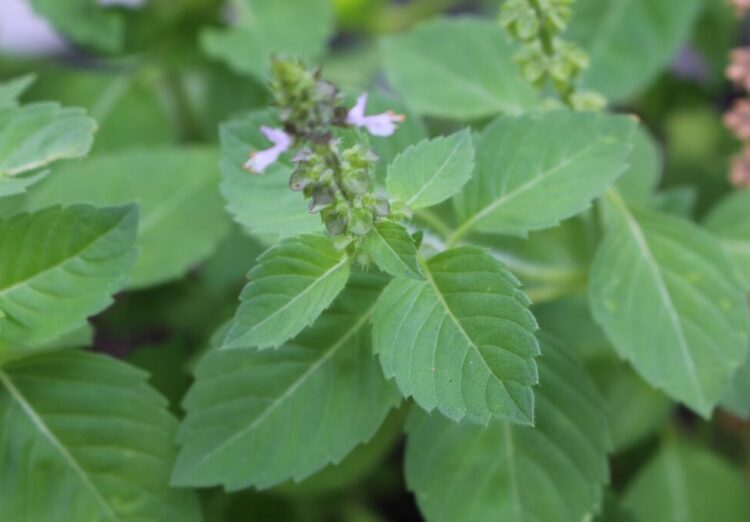Tulsi (holy basil)
Botanical Name – Ocimum sanctum
Family: Lamiaceae
Energetics: warm, dry, relaxant
Taste: aromatic, sweet, pungent, bitter
Parts used: flowers and leaves
Affinities: nervous, endocrine, digestive systems
Actions: nervine, exhilarant, adaptogen, digestive, hepatic, hypoglycemic, antimicrobial, diffuse, circulatory modulator, diaphoretic
Preparations: tea, bath tea, tincture
Cautions: Generally regarded as safe for all ages.
Therapeutic Uses:
- Tulsi is excellent for support of the parasympathetic nervous system (rest and digest). It helps your body handle stress more affectively. And that can be any type of stress from the stress of a long-term illness to the anxiety of holiday seasons.
- As an exhilarant, it is gently uplifting, helping you to feel better without giving you a feeling of being unnaturally “high”. When you feel like you’ve had a really bad day and that 4th glass of wine sounds really delicious, tulsi tea is actually what you need.
- When digestive issues are causing your anxiety and stress, tulsi’s aromatic and diffusive actions will help get things moving in the gut. Often if you feel anxious, jittery, or nervous and aren’t sure why, gut issues are actually to blame. Often called your “second brain”, your gut health is of vital importance to your overall mental and emotional well-being.

